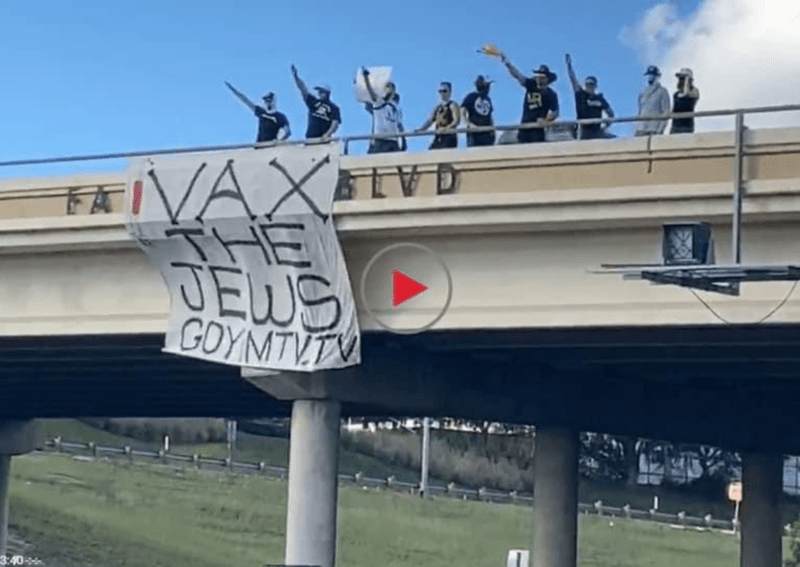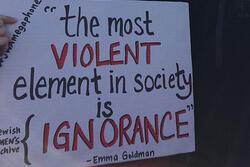When Those Charged with Protecting Us from Bigotry Are Racist
On October 31, 2021, 18-year-old Franklin Barrett Sechriest set fire to a synagogue in Austin, Texas, causing extensive damage to the building. There was no doubt as to the antisemitic nature of the attack—Sechriest was later found to be carrying Nazi propaganda flyers and swastikas, as well as a journal with entries espousing antisemitic and racist views.
This was just the latest in a series of antisemitic incidents in Austin. On October 23, antisemitic, racist, and homophobic graffiti was discovered at a local high school. Just days later, the Goyim Defense League, a neo-Nazi group whose name mocks the Anti-Defamation League, displayed “Vax the Jews” banners at a nearby expressway.
What is particularly noteworthy about this latest attack is that the perpetrator was serving in the Texas State Guard at the time. Perhaps this shouldn’t come as a surprise, though, given the structural racism that plagues the US military and police forces. The very institutions that should be protecting us from bigotry often condone racist acts—or even perpetrate them.
In response to the actions of the neo-Nazi group in Austin, for example, an officer in the city’s police department was photographed fist-bumping a member of the group. And across the country, State and National Guards have been plagued by racist acts. In 2019, two men were removed from the Alabama National Guard when activists revealed their white supremacist ties. Last year, the Tennessee National Guard was forced to investigate racism claims from a former guardsman, who said his fellow soldiers called him by a racial slur so regularly, it was as though it “was my name or something.”
Earlier this year, Texas State guardsman Andy Hopper complained in an article for Texas Score Card that the militia had become infiltrated by “a left-wing political agenda of cultural Marxism, critical race theory, and moral relativism.” Hopper’s concerns contribute to a familiar narrative in Texas, where the teaching of critical race theory in high schools was controversially banned in June, of scapegoating so-called “extremists” campaigning for greater representation and diversity. According to a recent NPR story, racial bias in military discipline is so extreme that “veterans and military experts say [it] has become a serious threat to national security.”
The record isn’t much better for the police. Police brutality and the disproportionate racial profiling of marginalized communities remains an urgent issue, despite the watershed murder of George Floyd by white police officer Derek Chauvin in May 2020.
In a recent statement responding to Sechriest’s crimes, the Texas Military Department stated that it “will not tolerate misconduct or behavior unbecoming of a Soldier...Every member of the Texas Military Department is held to a high standard of professionalism. Texans know and trust [their] National Guard." But how can people from marginalized groups trust these institutions when their representatives fail to stand up to bigotry? In the case of Sechriest, for example, neither the Texas State Guard nor the Military Department explicitly condemned the antisemitic nature of the crime. When members of these institutions themselves commit racist acts, that only exacerbates the distrust.
In response to Sechriest’s arrest, the organization Jewish Voice for Peace wrote in a Facebook post that “the military and police are not our allies in the fight against antisemitism, and [the attack] is one of the reasons why.” Enduring structural racism within these national institutions has reduced confidence in their willingness and ability to protect Jewish lives, even as Jewish communities across the US face intensifying discrimination.
In an increasingly hostile political climate, marginalized Jewish, Black, and other communities cannot trust in military and police forces beset by structural racism. If the people representing these institutions, like Sechriest, are bigoted, how can we hope to eradicate racism elsewhere?








So one or a few incident makes all police and military bigoted? Nonsense. Structural racism also nonsense. Articles like these make no sense in the broader situation in the US.
Jewish Voice for Peace is not an organization that I respect, but to each their own.